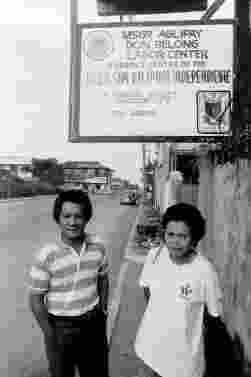
| The
mandate of
URM is to encourage, assist and support the WCC member churches in
an understanding and practice of mission that involves them in resisting
unjust structures in solidarity with those who have been made poor
and marginalized. The focus is to enable communities to organize for
empowerment and social transformation in the perspective of the reign
of God. URM is a movement of people, rooted in the Christian faith (while working together with people of other faiths), who are committed to being in solidarity with the struggles of oppressed people for justice and liberation. It aims to link urban and rural community organizations, people's movements and networks together with churches and mission bodies, nationally, regionally and globally. Support for community-building will always be a major focus of the work and methodology of the URM. It raises awareness of the dignity and the potential of the underprivileged and the marginalized, and promotes the growth of sustainable communities. It works for Christian initiatives to be with peoples' struggles for community and justice. |
|
| URM programme
priorities are: This work is about mission in Christ's way. It implies taking sides, getting involved, accepting people as they are and building new communities. It strives for faithfulness to the mission of God which is the proclamation of abundant life. It is also about "spirituality". We encounter the Spirit of God in other people, through the courage of communities who resist, struggle and have hope of a new life, a new creation and a new community in spite of pain, suffering and death. URM programmes are decentralized to six regions: Asia, Africa, Europe, Latin America, Middle East and North America. Each region has a contact group/committee composed principally of local community organizers, supported by others to strengthen analysis, biblical/theological and ideological reflection and relations with the churches. WCC-URM's work is guided by a global commission. The WCC-URM office in Geneva coordinates and facilitates the whole programme, working with each region to support the regional networks for greater cohesion and collaboration in the global family, and to interpret and promote URM goals within WCC, the ecumenical movement and with supporting churches and donor agencies. |
